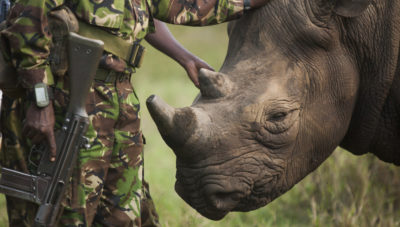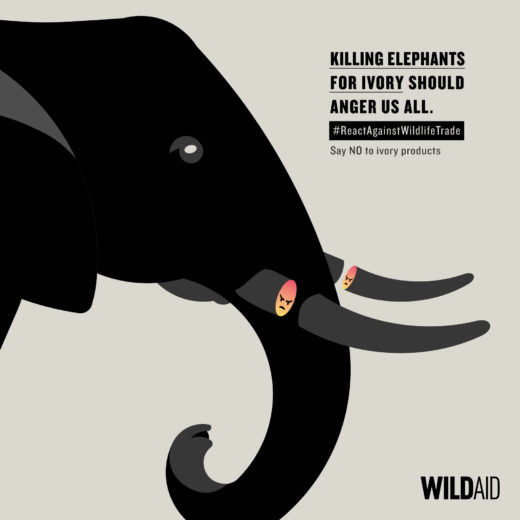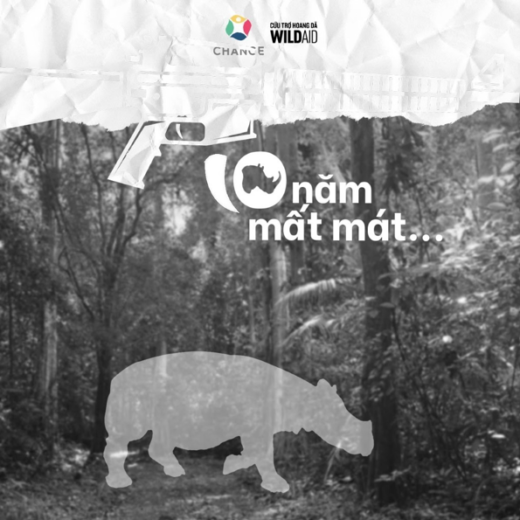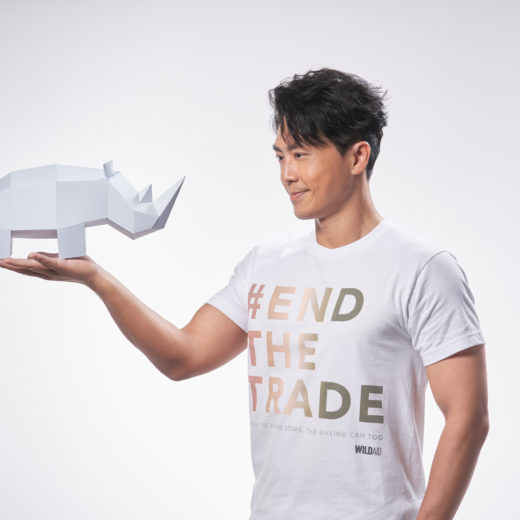
HONG KONG SAR November 26, 2018 – With auction houses Sotheby’s and Bonhams having just announced that they will no longer sell rhino horn items, WildAid calls on China Guardian Auctions and Poly Auction – the last two of Hong Kong SAR’s five major auction houses – to act responsibly by immediately banning the sale of rhino horn items.
“It’s high time that all auction houses committed themselves to protecting endangered species,” said WildAid Hong Kong SAR Campaigner Alex Hofford. “Let the recent ethical decisions by Sotheby’s and Bonhams to end the sale of rhino horn items inspire China Guardian and Poly Auction to join the global community and to do their part to ensure the survival of the remaining wild rhino populations.”
Last week, after 37 global wildlife conservation organizations signed a letter urging Bonhams to cancel its rhino horn auction scheduled for November 27 and to remove rhino horn items from their salesrooms permanently, Bonhams Global CEO Matthew Girling announced that all 21 rhino horn items would be taken off the November auction block as well as from all future auctions.
“Bonhams stands behind the professionalism and expertise of its specialists,” said Girling in a statement. “We do, however, recognize there are widely held concerns about this issue and have decided that the sale of the rhinoceros carvings will now not take place. In future, Bonhams will not offer artifacts made entirely or partly from rhinoceros horn in its salerooms.”
Shortly after Girling’s statement, Sotheby’s also announced that they would withdraw rhino horn items from their upcoming sale on November 29. Bonhams and Sotheby’s join Christie’s auction house, which already had a ban in place.
“The company will no longer offer rhino horn artifacts in the future,” Sotheby’s said in a statement. “Sotheby’s deplores any illegal slaughter and trading of endangered wildlife, and strongly supports conservation efforts from the global community.”
In addition to using the horn as a traditional “medicine,” carvings and accessories have become increasingly desirable for the purposes of home decoration, speculative investment, bribing and gifting.
“Canceling the sale of rhino horn sends a clear signal from Bonhams and Sotheby’s that rhino horn is worth more on the rhino than as an artifact on an auction block,” said John Baker, Managing Director of WildAid. “It’s time for China Guardian Auctions and Poly Auction to do their part to save this vulnerable species.”
Thousands of rhinos have been poached for their horns in the past ten years, most of them in South Africa. Despite spending millions of dollars on protective measures, the country continues to lose rhinos at an alarming rate. CITES and other global wildlife bodies have recognized that reducing demand for wildlife products is the key to protecting them.
Editor’s Note: Following calls from WildAid and other conservation groups, China Guardian has become the latest auction house to ban the sale of rhino horn items. Only Poly Auction has yet to announce a ban.
Stay in touch and get the latest WildAid updates.
SIGN UPAbout WildAid
WildAid is a non-profit organization with a mission to protect wildlife from illegal trade and other imminent threats. While most wildlife conservation groups focus on protecting animals from poaching, WildAid primarily works to reduce global consumption of wildlife products such as elephant ivory, rhino horn and shark fin soup. With an unrivaled portfolio of celebrity ambassadors and a global network of media partners, WildAid leverages more than $308 million in annual pro-bono media support with a simple message: When the Buying Stops, the Killing Can Too.
Journalists on deadline may email communications@wildaid.org


